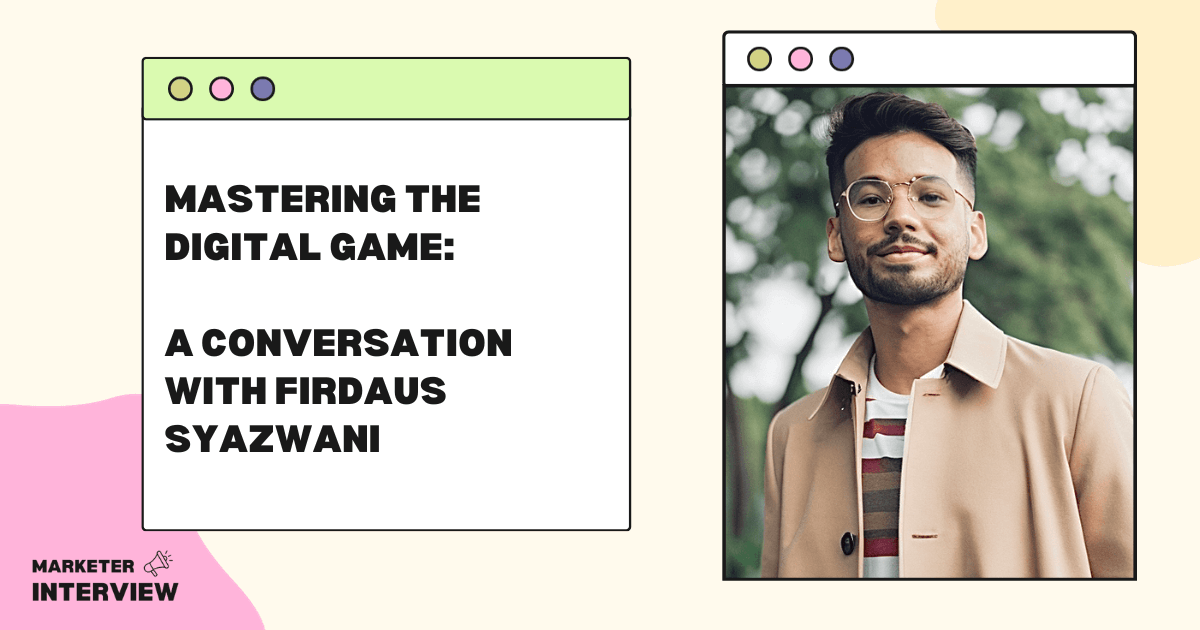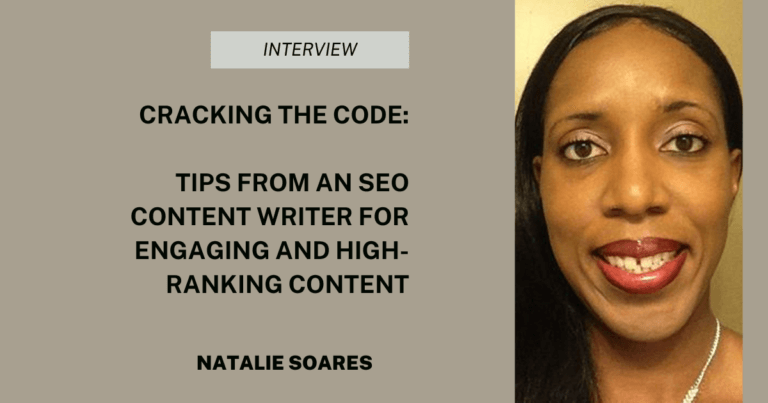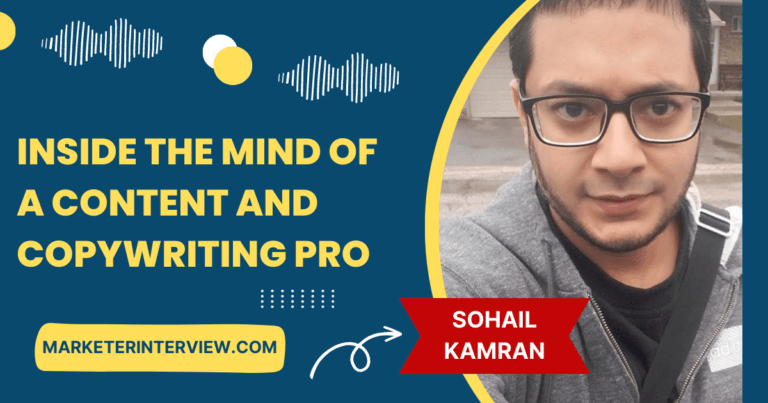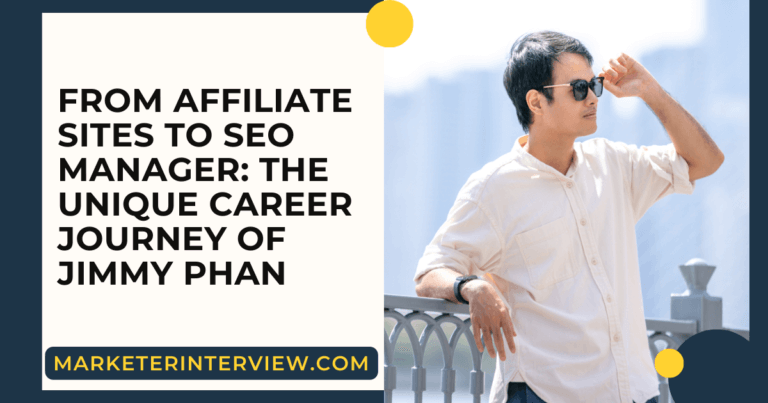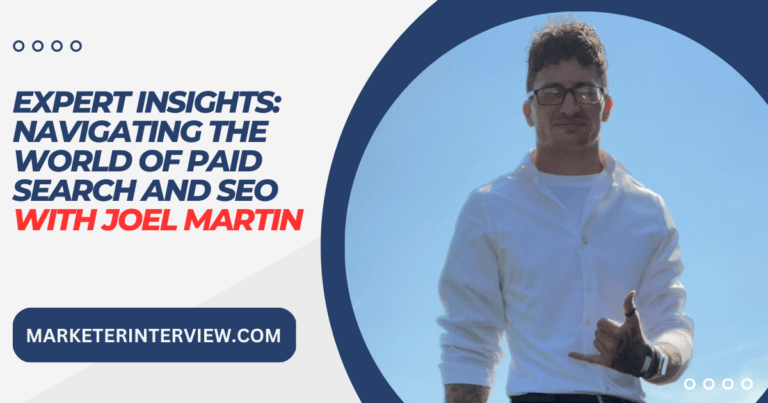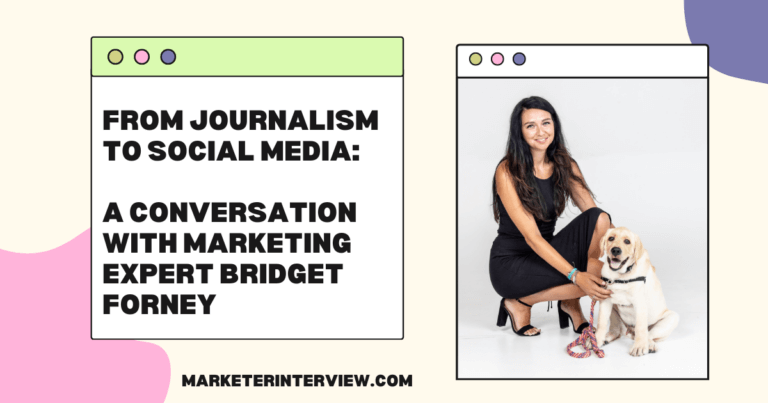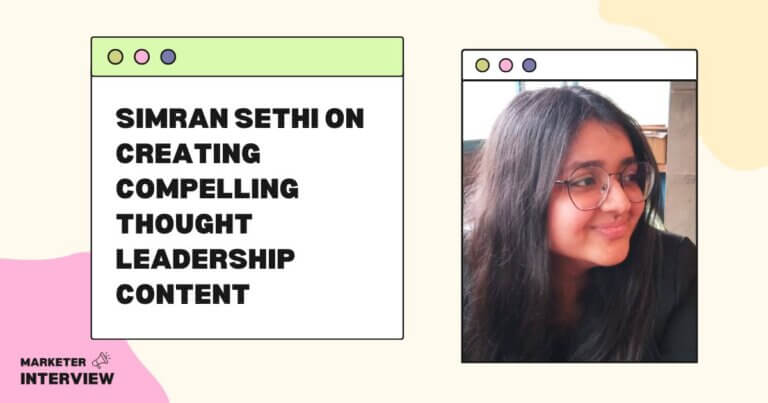Mastering the Digital Game: A Conversation with Firdaus Syazwani
Welcome to Marketer Interview, where we delve into the minds of innovative marketers who have left an indelible mark in the digital landscape.
In this edition, we have the pleasure of conversing with Firdaus Syazwani, the Founder of Dollar Bureau, a trailblazing figure in the realm of SEO and AI content generation.
Firdaus’s journey from grappling with the intricacies of SEO to becoming a maven in the field is inspiring and instructive. Join us as we unravel the strategies, methodologies, and tools behind Firdaus’s success.
Contents
- 1 Genesis of Your SEO Journey: Firdaus, can you share the moment that sparked your interest in SEO, leading you down the digital marketing path?
- 2 Self-Learning Marathon: You mentioned extensive self-learning. What were the pivotal resources or influencers shaped your understanding of SEO, and how did they contribute to your approach?
- 3 Evolution of Techniques: With the dynamic nature of SEO, how have your strategies evolved since you first embarked on this journey in 2018?
- 4 Ethics in SEO: You’ve mentioned encountering both ethical and unethical practices. How do you navigate the ethical landscape of SEO, and what principles guide your approach?
- 5 Inspirations in the Industry: Nathan Gotch, Matt Diggity, and others have influenced you. How have their methodologies impacted your own, and what unique elements have you incorporated into your SEO strategy?
- 6 One-and-Done Philosophy: You believe in doing things right the first time. Can you elaborate on this philosophy and how it has contributed to the success of your websites?
- 7 From Freelancer to Entrepreneur: Transitioning from a freelancer/consultant to managing your blogs, what prompted this shift, and how has it influenced your approach to SEO?
- 8 Client Success Stories: Achieving up to 9.7x ROI for clients is impressive. Can you share a specific success story that highlights the effectiveness of your SEO strategies?
- 9 Monetization Mix: By managing multiple blogs, you utilize various monetization avenues. Which has been the most effective, and how do you balance profitability with user experience?
- 10 AI in Content Generation: With the rise of AI, how do you integrate it into your content generation process, and what benefits have you observed?
- 11 Tools of the Trade: Lastly, what essential tools and software do you rely on for your SEO and content generation tasks, and how do they contribute to your efficiency?
My journey into the world of SEO and digital marketing began quite unexpectedly when I was 17, about a decade ago. I remember watching an episode of Shark Tank where a company was sending aubergines as a novelty gift.
This sparked a quirky idea in me to send cucumbers through the mail to friends as a humorous prank. The response was overwhelmingly positive, with friends sharing their reactions online, leading to a surprising demand for similar pranks. I started an online store to utilize the surplus of envelopes, stamps, and markers.
However, I quickly realized that my brand was invisible on Google, which was my first real encounter with the concept of SEO. Although this business was short-lived due to my academic commitments, it opened my eyes to the power of SEO as a cost-effective marketing channel.
My true passion for SEO was ignited in 2018, during my first year at university. I was confident about pursuing a career in digital marketing but needed to figure out my specialization. This led me to invest in a 12-in-1 digital marketing course, which was a turning point.
Discovering SEO in this course was like finding a hidden gem. The allure of starting for free, attracting organic traffic, and monetizing content was irresistible. It promised a career path and a lifestyle – the freedom to be my boss, work remotely, and earn by simply publishing content.
This revelation sent me down an exhilarating path of learning and exploring the vast potential of SEO, shaping my professional journey in profound ways.
Self-Learning Marathon: You mentioned extensive self-learning. What were the pivotal resources or influencers shaped your understanding of SEO, and how did they contribute to your approach?
My self-learning journey in SEO was like a marathon, filled with many resources ranging from bloggers to YouTubers. It’s challenging to list them all as I delved deep into a rabbit hole of learning.
However, some crucial resources and influencers significantly shaped my understanding and approach to SEO. Platforms such as Moz, Ahrefs, and Backlinko were instrumental in building my foundational knowledge. They provided insights into the core aspects of SEO, including on-page, off-page, and technical SEO. Influencers like Nathan Gotch, Matt Diggity, Authority Hacker, and Income School further honed my skills, offering advanced strategies and tactics I could apply to my client’s websites.
As I was based in Singapore, I noticed some differences in what worked here compared to what worked in other countries. I took bits and pieces from these platforms and influencers to develop an approach that suits and works in Singapore.
But acquiring knowledge was just one part of the equation. The real challenge lay in execution. I had to learn how to build WordPress websites from scratch, implement technical SEO improvements, and optimize website speeds. These skills were crucial in transforming theoretical knowledge into practical, real-world applications.
This hands-on experience deepened my understanding of SEO and equipped me with the tools to navigate and succeed effectively in the ever-evolving digital marketing landscape.
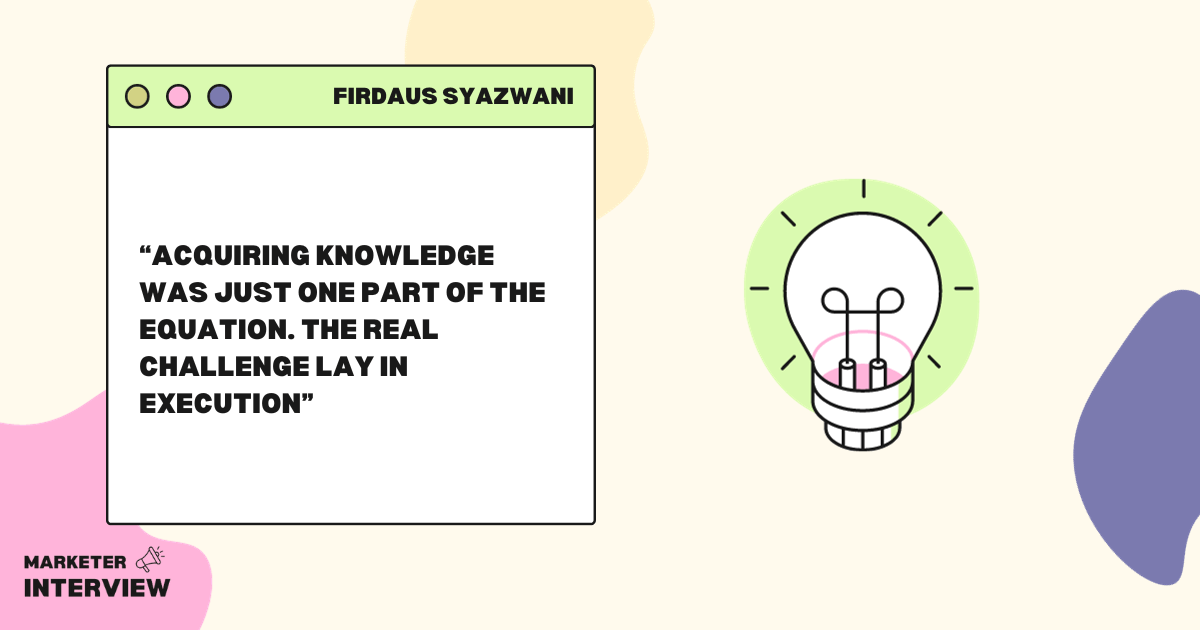
Evolution of Techniques: With the dynamic nature of SEO, how have your strategies evolved since you first embarked on this journey in 2018?
Initially, my approach was heavily reliant on a 100% content strategy. This method proved effective for targeting low-competition keywords, which was adequate for the needs of my clients and me at the start.
However, as I ventured into more competitive keywords and aimed for higher client retention, I realized that relying solely on content was insufficient. This led me to adopt a combined strategy of content and link building.
In the early stages of integrating this content plus link strategy, I focused on creating exact or partial match anchor texts that linked directly to the money pages. This tactic was highly effective at the time.
Additionally, I matched the number of links to competitor pages, considered Domain Rating (DR) levels, and balanced nofollow versus dofollow ratios. This meticulous approach yielded significant results in improving website rankings.
However, with the continuous evolution of SEO, my strategies have further matured. Nowadays, I focus on building links with a more diversified range of anchor texts. More importantly, I have shifted towards establishing topical authority. This involves covering every facet of a specific topic and incorporating concept-based topics.
This comprehensive approach enhances authority and brand presence in the space. It aligns with the latest best practices in SEO, ensuring that my strategies remain practical and relevant in the ever-changing landscape of search engine optimization.
Navigating the ethical landscape of SEO is a complex and nuanced challenge, as the perception of ethics can vary greatly among individuals in the industry. I view grey and black hat strategies not as unethical but as choices based on the level of risk one is willing to take.
However, my initial stance on what I consider unethical in SEO is quite clear: negative SEO. This practice, which involves deliberately harming another website to boost your own, is something I’ve always found questionable.
Negative SEO has undoubtedly developed in complexity since I began my career in SEO. The methods employed now are more advanced, often involving techniques like link cloaking. I’ve been privy to various strategies used in negative SEO as they were confidently shared with me, so I prefer not to detail them here.
However, as I speak to many SEOs in the industry, especially those I met in conferences, I realized that it was part of the game. Everyone is doing it, and if you don’t do it, you’ll lose out. This makes sense, especially if you’re in highly competitive niches, so I completely understand why others do it. While I understand this viewpoint, it’s not a path I choose to follow in my SEO practices, especially since I don’t need to use it.
A fundamental principle guides my approach to SEO: focus on enhancing my websites rather than harming others.
Inspirations in the Industry: Nathan Gotch, Matt Diggity, and others have influenced you. How have their methodologies impacted your own, and what unique elements have you incorporated into your SEO strategy?
In the SEO industry, the influence of experts like Nathan Gotch and Matt Diggity has significantly shaped my approach, but I’ve also developed my unique methodologies.
In SEO, there’s often a discussion about different ‘hats’ – white, black, and various shades – symbolizing different approaches. I don’t adhere strictly to any specific ‘hat’ ideology. Instead, I focus on strategies that yield high ROI and are sustainable in the long term. This perspective, combined with understanding how SERPs work in Singapore, has been crucial in developing my approach.
In Singapore, where competition is on a national rather than local level, the importance of high-quality content cannot be overstated. However, acquiring natural links is challenging due to the relative scarcity of bloggers and websites.
I’ve had to adopt strategies like guest post outreach or niche edits, which some might consider on the greyer side of SEO. A unique aspect of my strategy is building links from niche-related international websites, compensating for the limited local opportunities.
Another innovative tactic I employ is cross-niching. This involves linking seemingly disparate niches, such as financial planning with legal websites through topics like will writing and estate planning, or with health websites on subjects like saving money by staying healthy or reducing medical costs through insurance. These cross-niche strategies enhance link-building efforts and broaden the content scope.
Additionally, I’m focusing on building E-E-A-T (Experience, Expertise, Authoritativeness, Trustworthiness) for Dollar Bureau and our authors. This includes creating detailed author pages, about pages, and editorial guidelines. These efforts are increasingly important in the personal finance industry, where credibility is paramount.
By incorporating these unique elements into my SEO strategy, I aim to improve our site’s ranking and establish Dollar Bureau as a trusted and authoritative source in the personal finance space.
One-and-Done Philosophy: You believe in doing things right the first time. Can you elaborate on this philosophy and how it has contributed to the success of your websites?
My “one-and-done” philosophy, particularly in the context of SEO, has been a cornerstone of my approach as a freelancer handling client SEO and managing my own websites.
This philosophy stems from a keen observation: many SEO providers focus on maximizing revenues by cutting costs, which, while beneficial for their business, often doesn’t serve the client’s long-term SEO needs.
Standard practices include basic on-page optimization like tweaking URLs, title tags, H1 tags, and meta descriptions, but neglecting crucial aspects such as technical SEO and resorting to building links from link farms. While these methods might yield short-term results, especially for non-competitive keywords, they fall short of sustaining the longevity of an SEO campaign.
In contrast, my approach prioritizes addressing technical SEO from the outset. This means optimizing everything from crawling and index bloat to website speeds, setting a solid foundation for all subsequent efforts.
Regarding keyword optimization, I don’t just stop adding keywords; I incorporate semantic keywords and images and employ basic and advanced on-page SEO techniques. This comprehensive approach maximizes the chances of immediate and long-term ranking success. I also adopt a strategic stance on link building, engaging in it only when necessary for ranking or in cases where the keyword has high commercial value and link building could solidify its position on the first page.
This meticulous and thorough approach has yielded quick and lasting results for my clients, leading to prolonged engagements and the purchase of high-margin services like link building and content publishing. The same philosophy is applied to my websites, such as Dollar Bureau.
We’ve seen significant conversions by focusing on ranking content effectively, maintaining those rankings, and building trust and confidence with readers. Dollar Bureau is now recognized as a trusted brand in insurance and financial planning in Singapore, a testament to the effectiveness of doing things right the first time.
From Freelancer to Entrepreneur: Transitioning from a freelancer/consultant to managing your blogs, what prompted this shift, and how has it influenced your approach to SEO?
The transition from being a freelancer/consultant to managing my blogs, such as Dollar Bureau, was prompted by personal circumstances and evolving professional aspirations.
Managing client SEO as a student was particularly stressful, juggling assignments, projects, and exams. A defining moment was when my largest client called me at midnight before an 8 am exam, seeking help with a PPC emergency – a service I didn’t even offer. However, retaining and assisting a significant client often meant going beyond my designated role.
My preference for working remotely and on my schedule also played a significant role in this shift. The allure of earning passive income was another compelling factor. The decision was further solidified when Dollar Bureau began generating a regular income, making it feasible to focus more on my ventures.
This shift has had a profound impact on my approach to SEO. My work depends entirely on my input, aligning closely with my ‘one-and-done’ philosophy. My responsibilities have expanded beyond SEO, including managing conversions, sales, and branding. These additional dimensions require an integrated approach, where SEO strategies are intertwined with broader marketing and business objectives.
Moreover, managing my business means overseeing finance, HR, and operations functions. These aspects are now integral to my overall approach, influencing not just SEO strategies but also how I shape the direction and growth of my business. This holistic perspective ensures that every decision and strategy is aligned with the broader goals of my ventures, driving sustainable success and growth.
Achieving significant ROI for clients and myself through SEO is another cornerstone of my approach. I would love to share specific success stories, though I must be mindful of the non-disclosure agreements (NDAs) in place. However, I can outline a general strategy that has been particularly effective.
The key lies in meticulously mapping out the customer journey. This process begins with identifying potential customers unaware of the solutions offered, guiding them through the discovery and decision-making stages, and finally leading to post-purchase engagement that encourages repurchases. The strategy involves several critical steps:
- Identifying Keywords for Each Stage: We conduct thorough research to find relevant keywords for each customer journey stage. This ensures we target potential customers effectively at every point in their decision-making process.
- Prioritising Bottom Funnel Keywords: The focus is initially on bottom-funnel keywords, which will bring immediate ROI. These are the terms used by customers who are ready to purchase or are very close to the decision point.
- Content Optimisation and Ranking: I prioritize writing, optimizing, and ranking content for these bottom funnel keywords. This step is crucial as it targets potential customers at the critical decision-making stage.
- Conversion Rate Optimisation (CRO): CRO is given special attention for these high-priority pages. By optimizing the user experience and the call-to-actions, we significantly increase the chances of converting visitors into customers.
- Building Content Up the Funnel: Once we’ve established a strong presence at the bottom of the funnel, we gradually build content upwards. This involves creating content that caters to customers at the earlier stages of their journey, such as those seeking information or considering various options.
- Internal Linking: A strategic internal linking structure is employed to funnel readers towards the later stages of the customer journey. This improves SEO and guides potential customers smoothly from awareness to consideration and finally to the decision stage.
Through this comprehensive approach, I’ve delivered substantial ROI for my clients, effectively turning their SEO investments into profitable returns. While specific client stories are confidential, this strategy has been a consistent factor in achieving successful outcomes.
Monetization Mix: By managing multiple blogs, you utilize various monetization avenues. Which has been the most effective, and how do you balance profitability with user experience?
In managing multiple blogs, I’ve explored various monetization avenues, each with unique challenges and rewards. The most effective method for me has been lead generation.
My background in working with clients who heavily rely on lead generation has given me a deep understanding of what converts not just leads but sales-qualified leads. This area is my specialty, and I am leveraging my expertise to maximize the effectiveness of this strategy.
Affiliate marketing, on the other hand, presents a different set of challenges, especially in the Singapore market. The scarcity of affiliate programs and the generally low commission rates make it less appealing than global markets. While it’s a viable avenue, it could have been more fruitful for my context.
I’ve consciously moved away from using ads on my sites. User experience (UX) is paramount to me; ads often detract from this. They can slow loading times, be intrusive, and hinder the reading experience.
I leave websites overrun with ads, and I wouldn’t want to subject my readers to that. Additionally, ads can negatively impact conversion rates, which are critical in lead generation, where every lead counts.
Sponsored posts are another avenue I’ve steered clear of, particularly for Dollar Bureau. Maintaining editorial integrity is crucial, and sponsored content often doesn’t align with this principle. The content must remain trustworthy and unbiased, which sponsored posts can sometimes compromise.
E-books and online courses have been an area I’ve experimented with on some of my other websites, though with limited success. However, given its larger and more engaged audience, I’m considering revisiting this strategy for Dollar Bureau. I’m currently learning to effectively create and market these products, aiming to offer valuable resources that resonate with my audience while contributing to the site’s monetization.
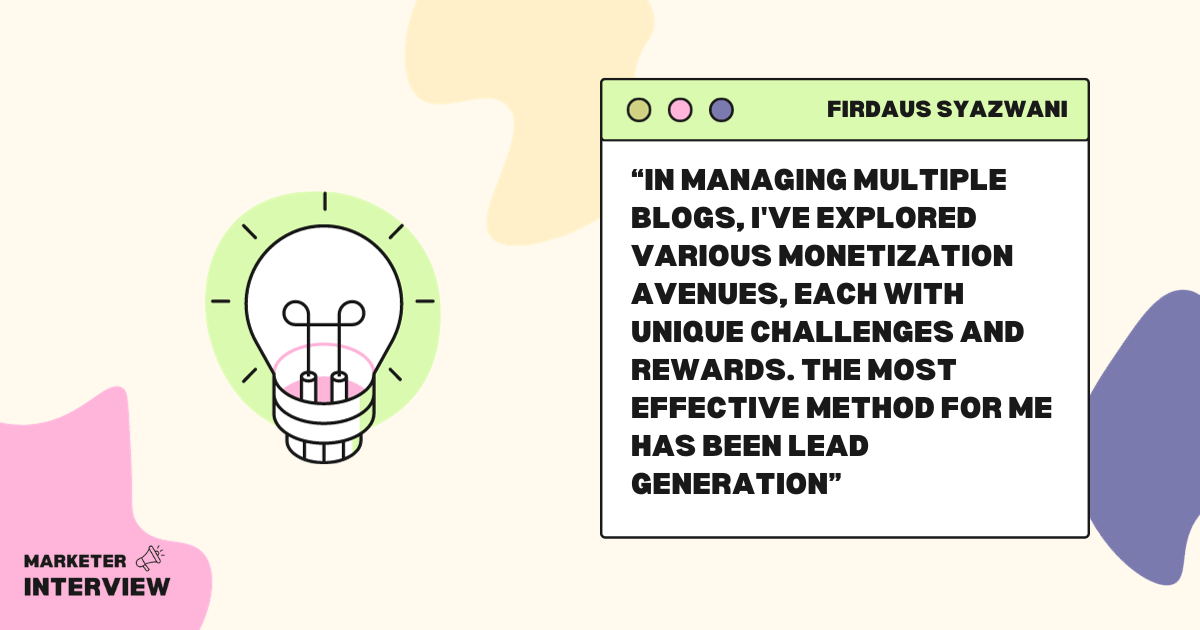
AI in Content Generation: With the rise of AI, how do you integrate it into your content generation process, and what benefits have you observed?
Integrating AI into our content generation process at Dollar Bureau has been a transformative experience, offering both efficiencies and new challenges.
One of the primary ways we use AI is in creating briefs for our authors. AI tools are exceptionally adept at summarising existing content and suggesting topics that should be covered to craft the most comprehensive articles for the SERPs. This initial step helps in laying a solid foundation for our content.
However, it’s important to note that AI has limitations. One significant issue is its tendency to produce inaccurate or even false information, which is commonly referred to as ‘hallucinations.’ While AI can be a powerful tool in content creation, it cannot be relied upon entirely without human oversight.
To maximize the potential of AI, my team and I are actively experimenting with various AI tools and prompts. We aim to derive the best and most accurate results, optimized from the outset. We’re currently refining our workflow so that it can be rolled out comprehensively for all authors to use as a starting point for their drafts. However, it’s crucial to emphasize that we publish content with thorough fact-checking and editing. Despite AI’s assistance, a significant level of editorial work remains required. Our authors and editors play a vital role in ensuring that the AI-assisted content adheres to the high editorial standards we’ve set.
Integrating AI into our content generation process has enabled us to increase our publishing volume while reducing costs. It also allows us to continue engaging our writers, who have been crucial to our journey for many years.
By balancing AI’s capabilities with human expertise and oversight, we can maintain the quality and integrity of our content, which is paramount in the competitive landscape of online publishing.
Tools of the Trade: Lastly, what essential tools and software do you rely on for your SEO and content generation tasks, and how do they contribute to your efficiency?
At Dollar Bureau and my other websites, we rely on tools that streamline our workflow and optimize our content creation process.
- Frase.io: This tool is instrumental for creating content briefs and first-draft content creation for my other websites. It helps optimize content from the start, ensuring that each piece is aligned with our SEO goals. For Dollar Bureau, Frase.io is particularly useful for developing content briefs and identifying key entities related to our topics. This aids in crafting content that is engaging, highly relevant, and informative.
- ChatGPT: ChatGPT is becoming an integral part of our content creation process for Dollar Bureau. We use it for generating first drafts and for optimizing content. Its ability to understand and generate human-like text makes it an invaluable tool for quickly producing quality drafts that can then be refined and enhanced by our human editors.
These tools are part of our overall workflow, but their impact is significant. They have significantly reduced the back-and-forth typically required between authors and editors, streamlining the content creation process.
By ensuring that our content is keyword-optimized from the outset, these tools not only save time but also contribute to the overall effectiveness of our SEO strategy. This approach allows us to maintain a high content quality standard while keeping pace with the demands of a dynamic digital landscape.
